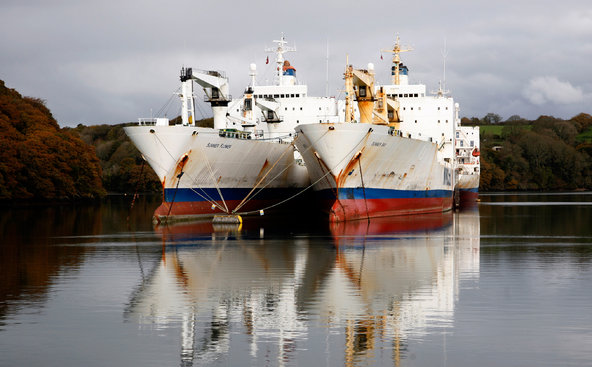Similar moves have been undertaken by central banks in Indonesia and Turkey. The action highlights growing fears on the part of policy makers in these countries that the recent slide in their currencies poses a serious economic threat given the high levels of dollar-denominated debt that their banks and companies have taken on.
As local currencies weaken, dollar debts increase in value and become increasingly difficult to service.
The real has lost more than 15 percent of its value against the dollar this year as foreign investors as well as locals have sold their reals for dollars.
The Indian rupee, the South African rand, the Turkish lira and the Indonesian rupiah also have lost more than 10 percent against the dollar as the hot money that once poured into these economies heads back to more developed economies in anticipation of higher interest rates in the United States.
“We are in the midst of a significant rebalancing, and the growth outlook for emerging market countries has deteriorated,” said Jens Nordvig, a currency strategist at Nomura in New York.
Earlier this week, the Turkish central bank increased interest rates in a bid to stop the fall of the lira, which is approaching the psychologically crucial hurdle of 2.00 as it hits record lows against the dollar. Indonesia, which like Turkey and Brazil relied on dollars from abroad to finance large current-account deficits, also announced on Friday a series of steps to increase the availability of dollars in the markets and the broader economy.
While the measures may have a short-term impact — the real was up more than 1 percent against the dollar on Friday — their long-term effect is uncertain. After years of heady growth, spurred in part by a commodity boom coupled with very low interest rates and stagnation in the United States and Europe, economic momentum is shifting slowly from emerging to developed economies.
Another concern: As economies in Turkey, Brazil and Indonesia slow, it becomes difficult politically for central banks to push rates ever higher to halt the flow of money heading for the exits.
Recep Tayyip Erdogan, the Turkish prime minister, whose ruling Justice and Development Party faces crucial local elections early next year, has been especially vocal in this regard.

Article source: http://www.nytimes.com/2013/08/24/business/global/brazilian-central-bank-acts-to-strengthen-its-currency.html?partner=rss&emc=rss



